Search
Search Results
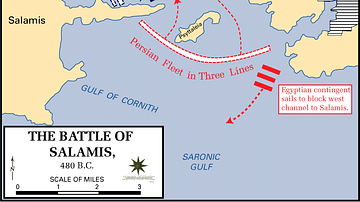
Definition
Battle of Salamis
The Battle of Salamis was a naval battle between Greek and Persian forces in the Saronic Gulf, Greece in September 480 BCE. The Greeks had recently lost the Battle of Thermopylae and drawn the naval Battle at Artemision, both in August 480...
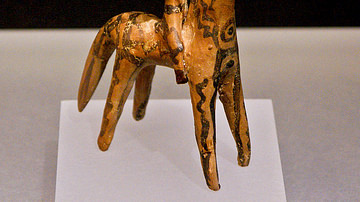
Definition
Warfare
Warfare is generally understood to be the controlled and systematic waging of armed conflict between sovereign nations or states, using military might and strategy, until one opponent is defeated on the field or sues for peace in the face...
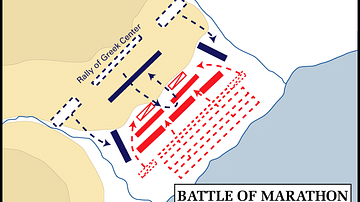
Definition
Battle of Marathon
The Battle on the plain of Marathon in September 490 BCE between Greeks and the invading forces of Persian king Darius I (r. 522-486 BCE) was a victory that would go down in folklore as the moment the Greek city-states showed the world their...

Article
The Greek Strategy at the Battle of Salamis 480 BCE
The history of the second Persian war as presented in most of the modern literature is solely based on Herodotus' Histories. However, Herodotus' narration seems to contain several unrealistic elements which raise doubts about the actual strategy...

Definition
Artemisia I of Caria
Artemisia I of Caria (l. 480 BCE) was the queen of the Anatolian region of Caria (south of ancient Lydia, in modern-day Turkey). She is most famous for her role in the naval Battle of Salamis in 480 BCE in which she fought for the Persians...
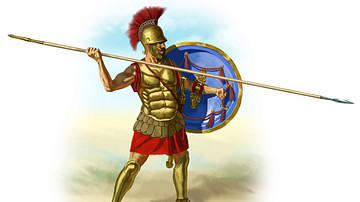
Definition
Hoplite
A hoplite (from ta hopla meaning tool or equipment) was the most common type of heavily armed foot-soldier in ancient Greece from the 7th to 4th centuries BCE, and most ordinary citizens of Greek city-states with sufficient means were expected...

Definition
Themistocles
Themistocles (c. 524 - c. 460 BCE) was an Athenian statesman and general (strategos) whose emphasis on naval power and military skills were instrumental during the Persian wars, victory in which ensured that Greece survived its greatest ever...
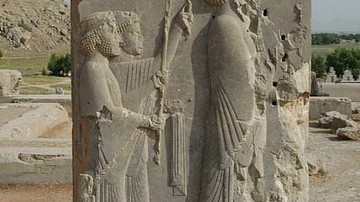
Definition
Xerxes I
Xerxes I (l. 519-465, r. 486-465 BCE), also known as Xerxes the Great, was the king of the Persian Achaemenid Empire. His official title was Shahanshah which, though usually translated as `emperor', actually means `king of kings'. He is identified...
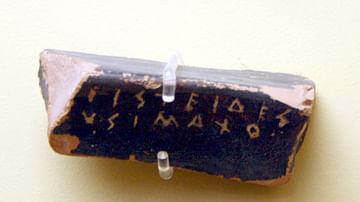
Definition
Aristides
Aristides (520s – c. 467 BCE) was an Athenian statesman and military commander who gained the honorific title 'the Just' through his consistent selfless behaviour in public office. Although ostracized by the Athenian assembly, Aristides...

Definition
Trireme
The trireme (Greek: triērēs) was the devastating warship of the ancient Mediterranean with three banks of oars. Fast, manoeuvrable, and with a bronze-sheathed ram on the prow to sink an enemy ship, the trireme permitted Athens to build its...